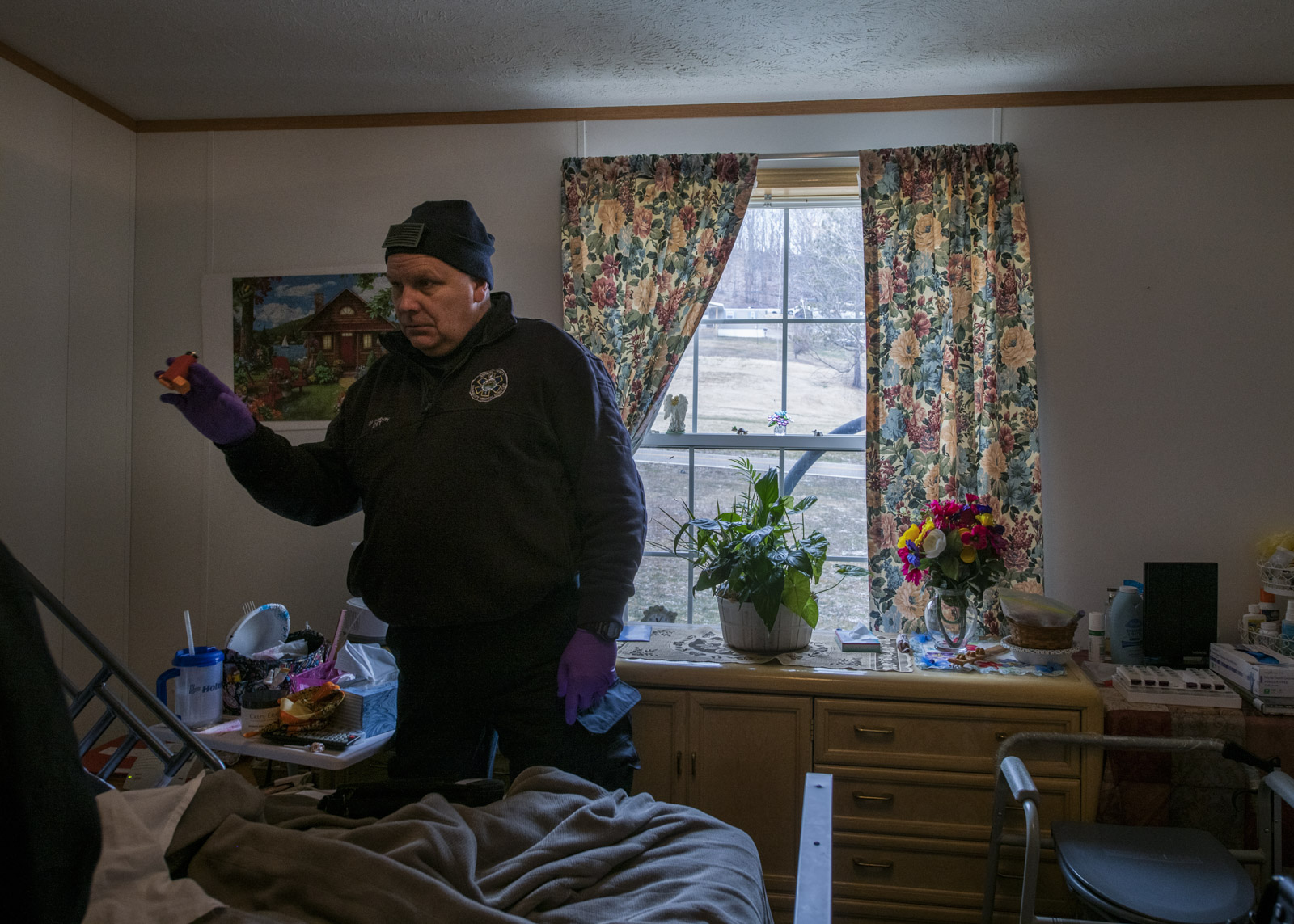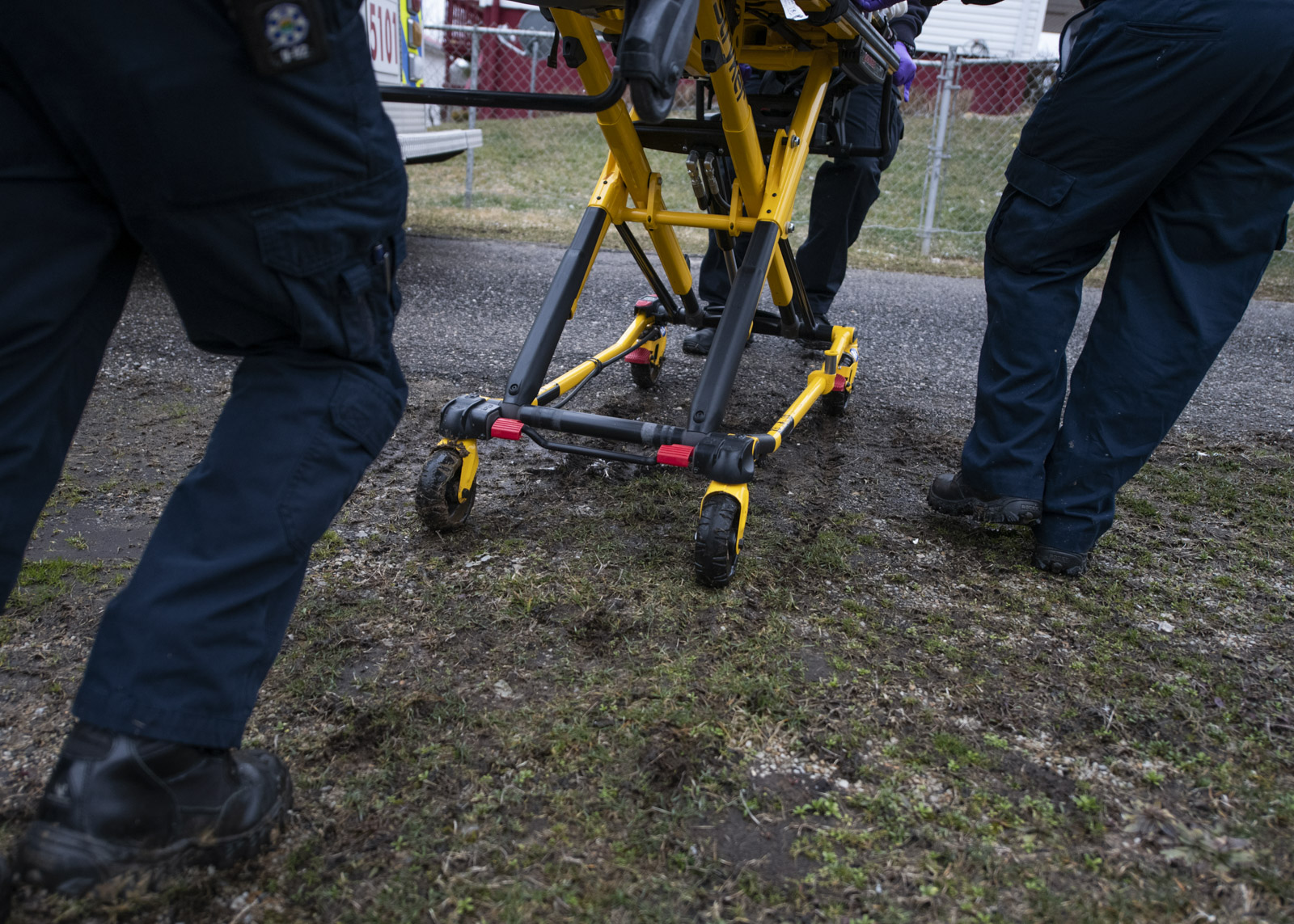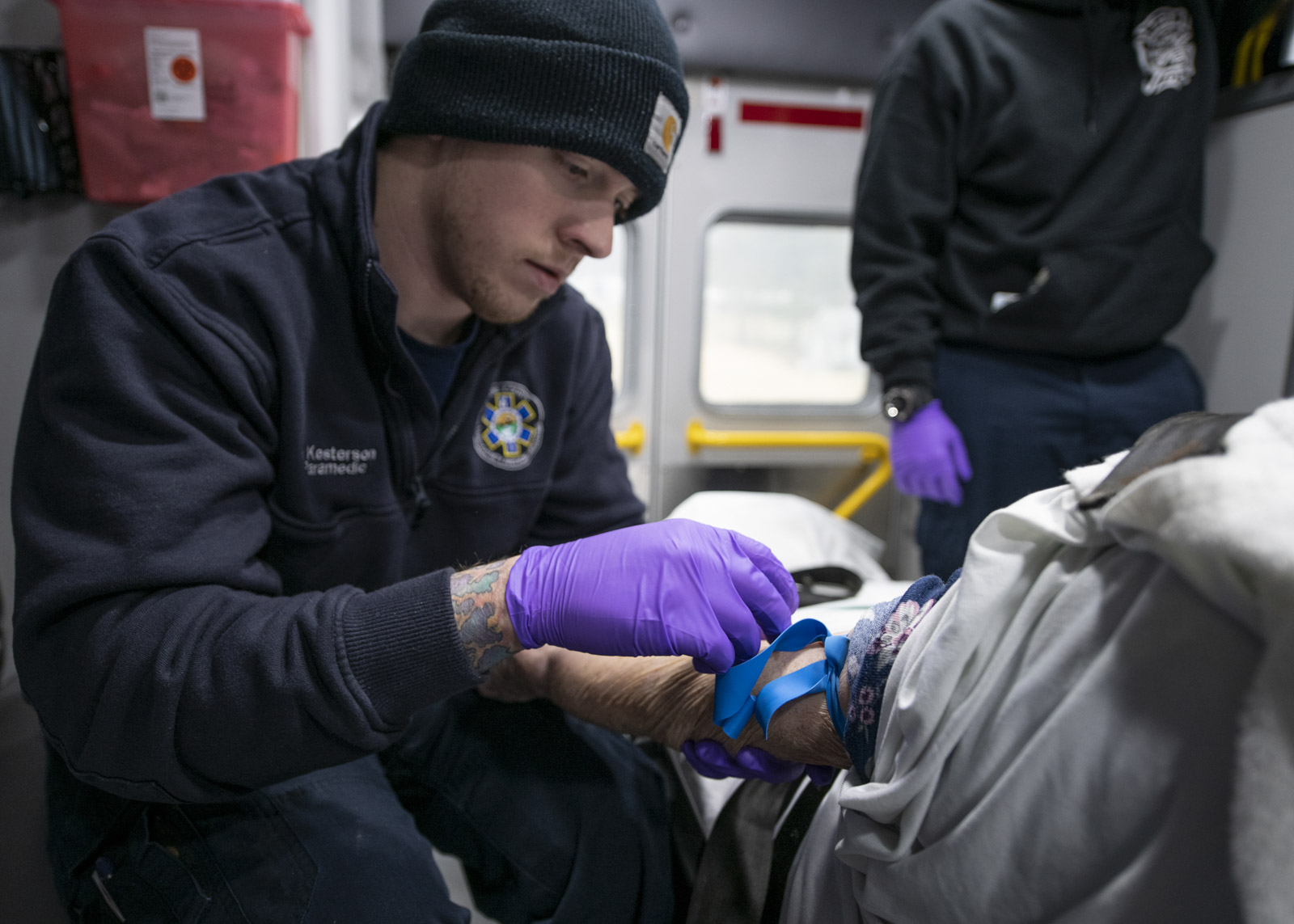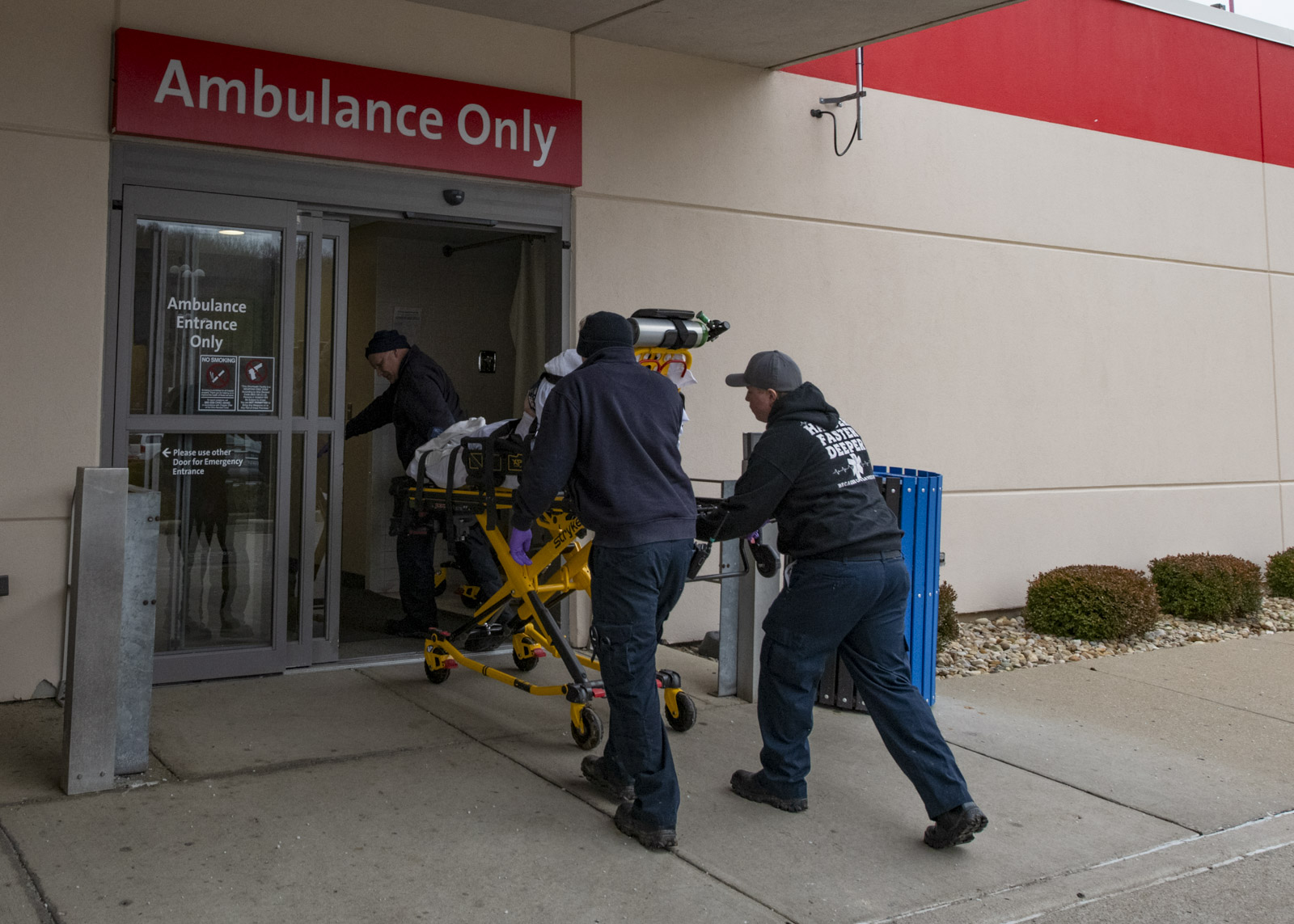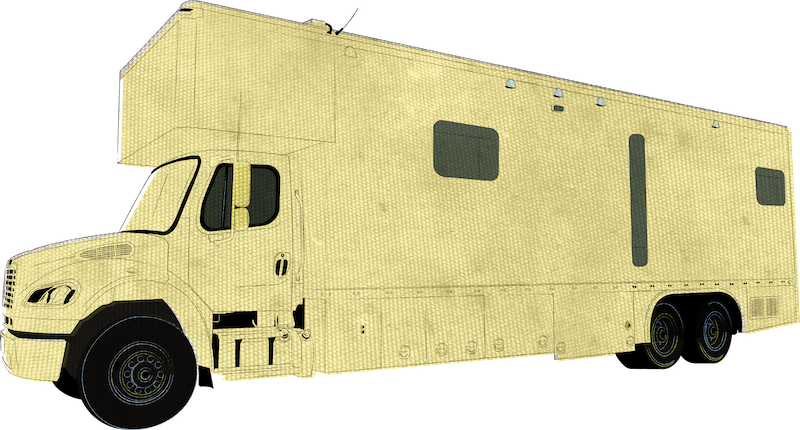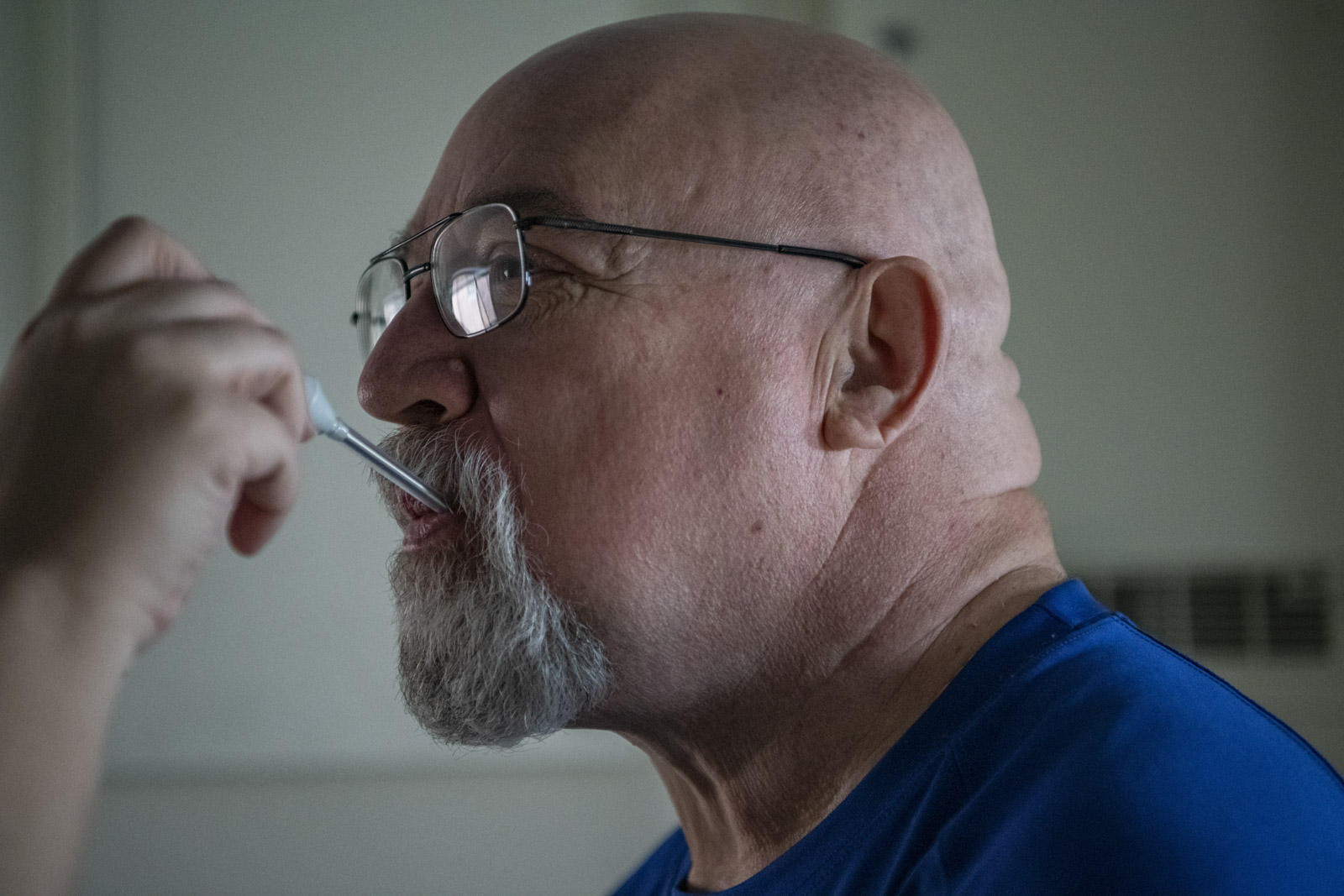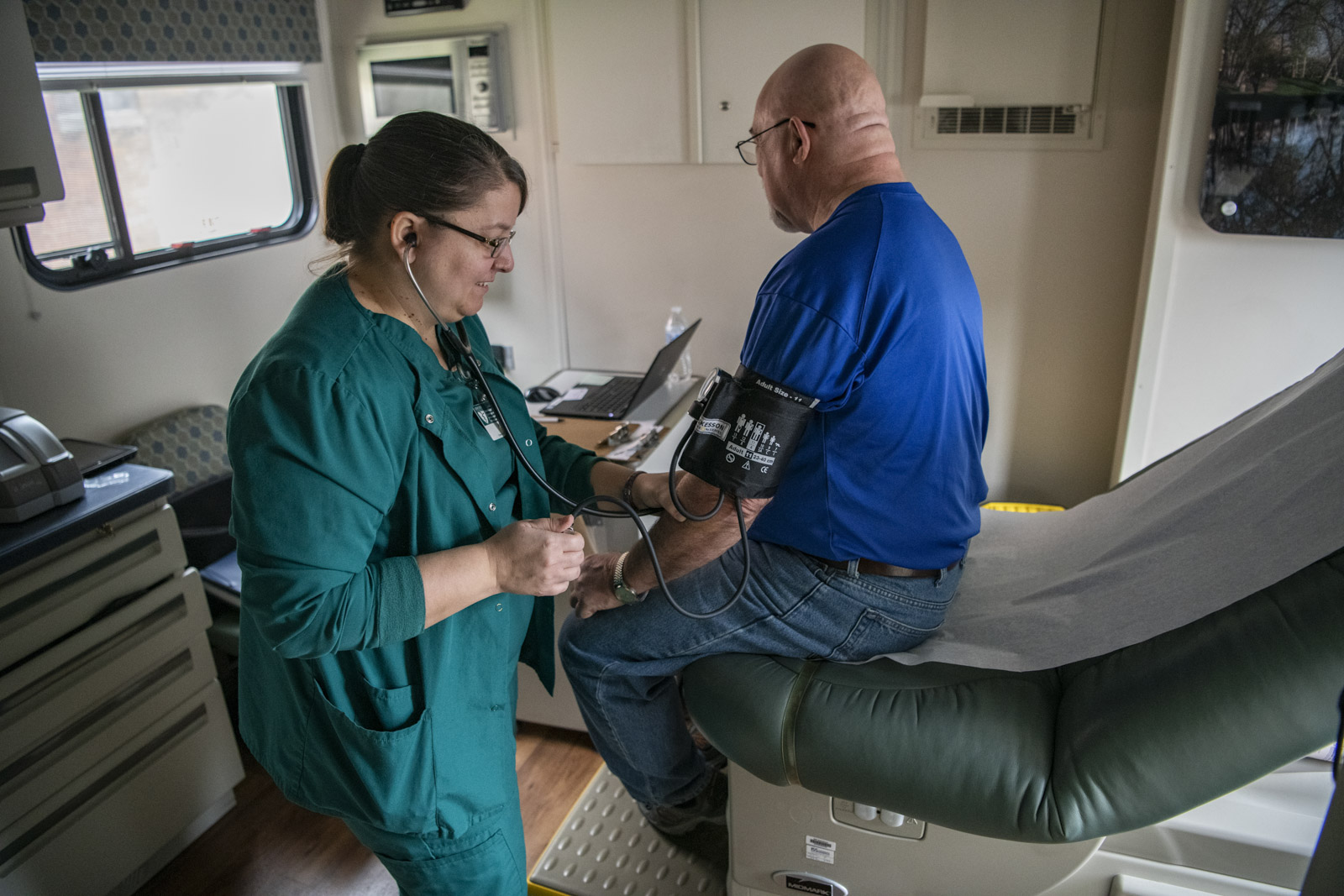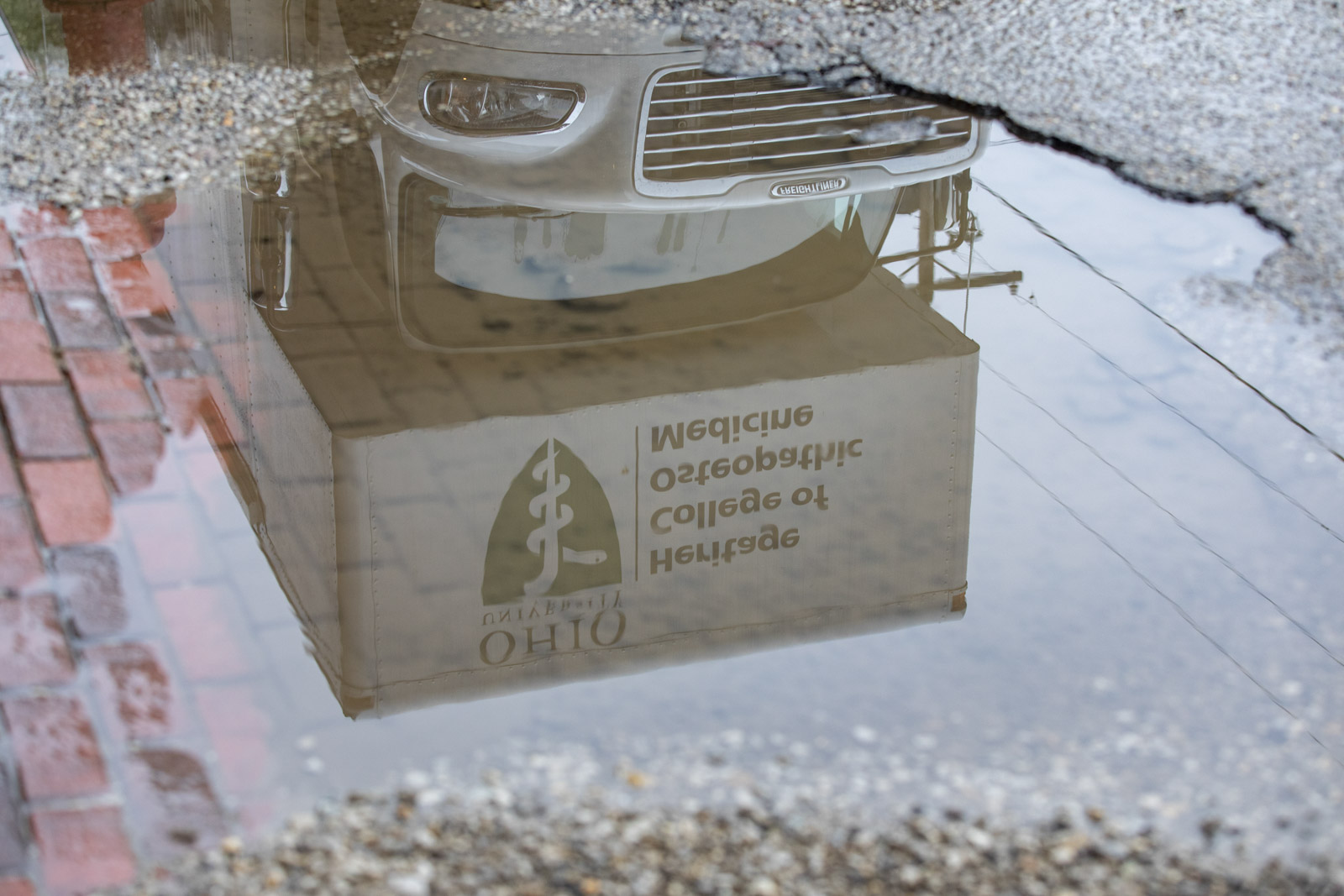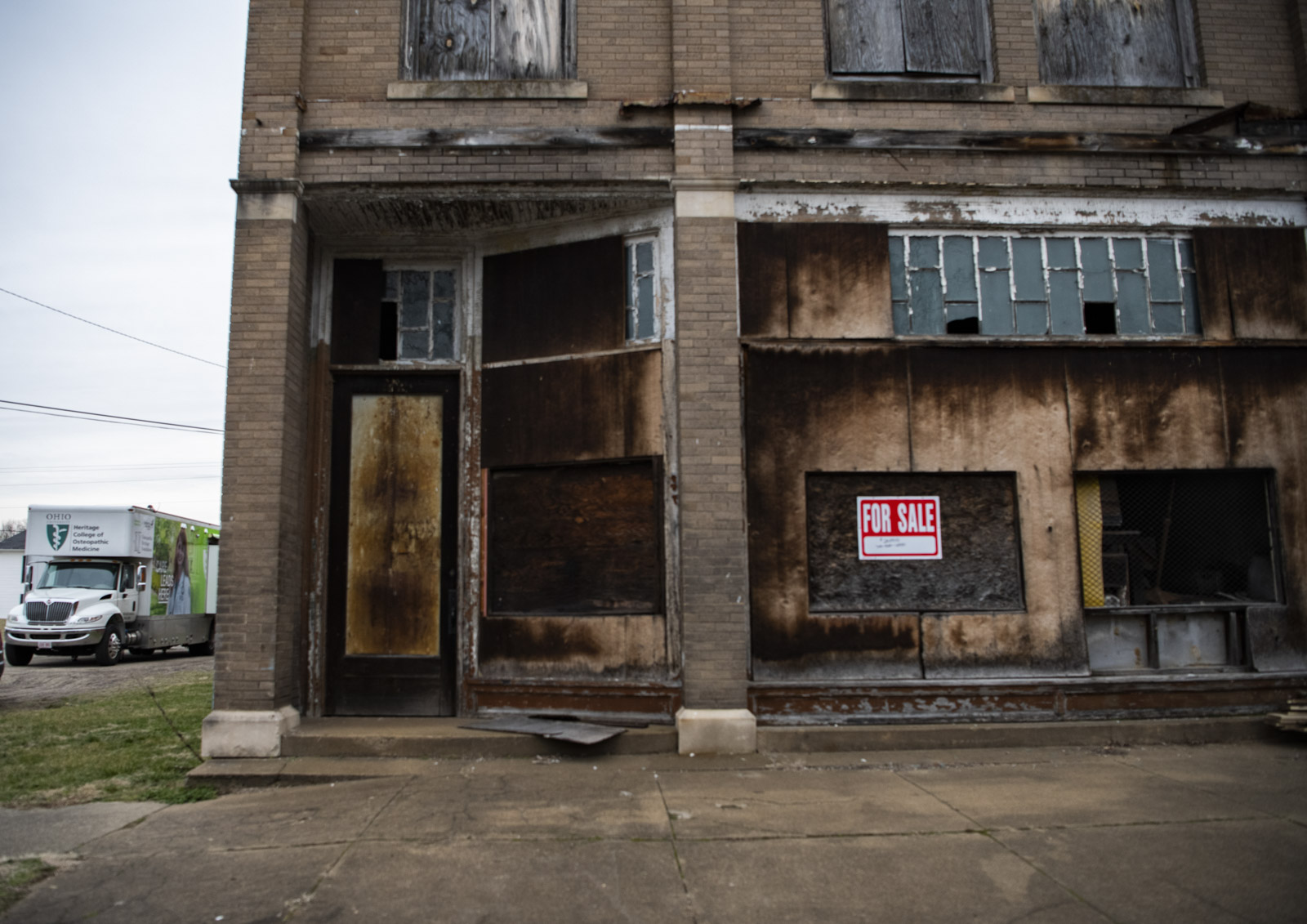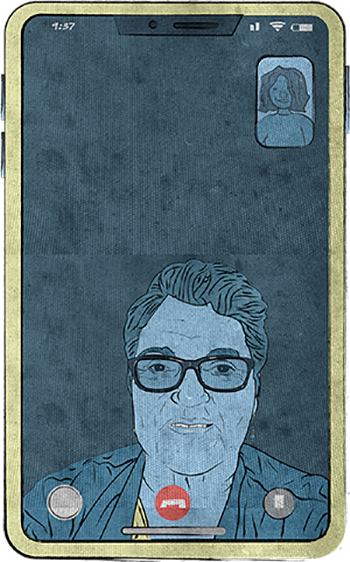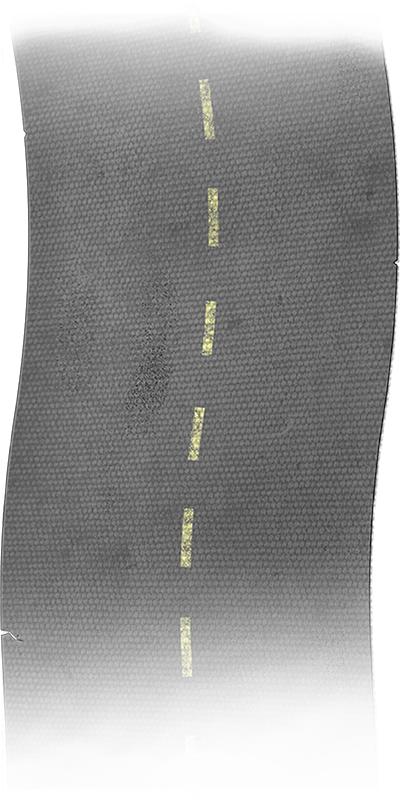RESPONDING IN
RURAL AREAS
Locating homes and finding reliable directions to accidents are major hurdles for providing necessary care that the Athens County Emergency Medical Service (EMS) first
responders face on a daily basis. Rick Callebs, chief of Athens County EMS, recounted the search for a victim of a logging accident in February 2020.
While dispatch knew that the caller was located on Mountville Road, on the border of Athens and Morgan counties, the precise location was difficult to find.
The ambulance only knew the road and it is a particularly long road, the ambulance did not know which end to enter and had nothing to go on."
The accident wasn’t visible from the road. The EMTs had to choose one end of the road to begin on and travel until they could see the caller. According to Chief Callebs, this is just one example of many incidents in which locating a
caller is problematic. As he describes it, the time it takes for some callers to reach dispatch and the time spent in locating the scene of the accident can be the difference between life and death.
It took 22 minutes for the EMTs to arrive at the Mountville Road location. The victim did not survive. While interviewing Callebs stated the victim may have died when the accident initially occurred.
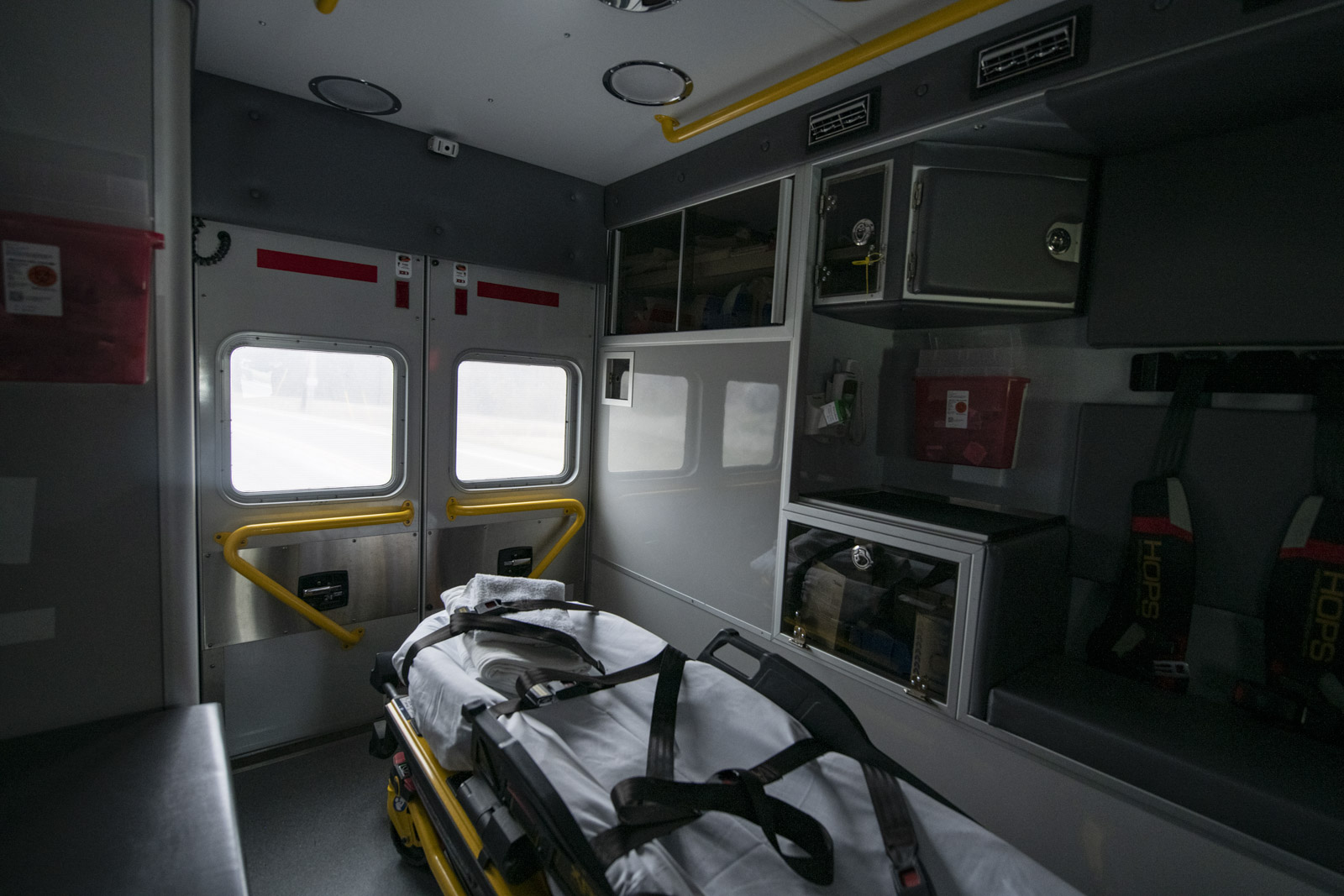
The Bureau of Workers’ Compensation is investigating as to whether or not the logging company, the employer of the victim, had provided a safe working environment.

